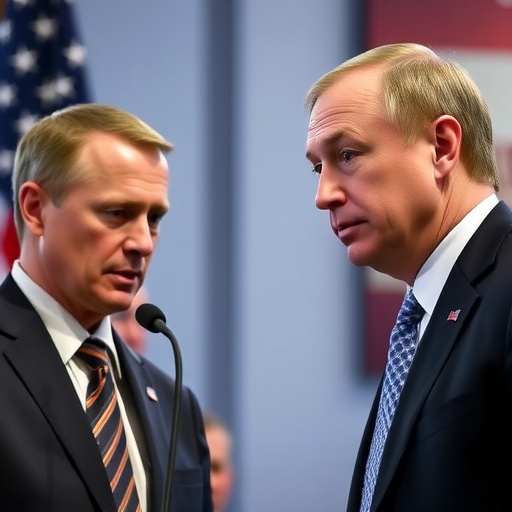Zelensky Pushes U.S. for Sweeping Sanctions on Entire Russian Oil Sector to Cripple Putin’s War Funding
In a impassioned address amid the relentless drumbeat of the Ukraine war, President Volodymyr Zelensky has urgently appealed to the United States to escalate its economic warfare against Russia by imposing comprehensive sanctions on the entire Russian oil sector. This bold call comes as Ukraine faces mounting battlefield pressures, with Zelensky arguing that targeting just two major oil companies—Rosneft and Gazprom Neft—is insufficient to starve Russia’s war machine of its primary financial lifeline. The plea underscores the deepening frustration in Kyiv over the pace of Western support, as Russian forces continue their advances in eastern Ukraine.
- Zelensky’s Direct Appeal Targets Russia’s Oil-Dependent Economy
- Existing U.S. Sanctions Fall Short Against Russian Oil Evasion Tactics
- Russian Oil Revenues Fuel Ukraine’s Battlefield Nightmares
- Allied Commitments and the Push for Enhanced Military Support
- Potential Ripple Effects of Sector-Wide Sanctions on Global Markets
Zelensky’s statement, delivered during a virtual meeting with U.S. lawmakers on October 15, 2023, highlights the critical role that Russian oil revenues play in sustaining Moscow’s military operations. “The U.S. has the power to turn off the taps that fund Putin’s aggression,” Zelensky declared, emphasizing that broader sanctions could generate billions in additional pressure on Russia’s economy while bolstering Ukraine’s defenses with more robust military aid. This renewed push arrives at a pivotal moment, with global oil prices fluctuating and Western allies grappling with their own energy security concerns.
Zelensky’s Direct Appeal Targets Russia’s Oil-Dependent Economy
President Zelensky’s call for expanded U.S. sanctions on Russian oil is not merely rhetorical; it’s a strategic escalation rooted in the harsh realities of the ongoing conflict. Since Russia’s full-scale invasion of Ukraine in February 2022, the country has relied heavily on oil exports to finance its military expenditures, which analysts estimate have exceeded $100 billion annually. Zelensky specifically urged the Biden administration to move beyond the current measures, which were imposed in September 2023 and limit U.S. investments in Rosneft and Gazprom Neft, two of Russia’s largest oil producers.
“Sanctioning individual companies is like plugging a few leaks in a sinking ship,” Zelensky said in his address. “We need to sink the ship entirely—target the whole sector to ensure Russia cannot evade the consequences.” This appeal comes as Ukraine reports daily casualties and infrastructure losses, with Russian missile strikes recently damaging key energy facilities in Kyiv and Kharkiv. The Ukrainian leader’s words resonate with a growing chorus in Washington, where bipartisan support for Ukraine remains strong but is increasingly tempered by domestic political debates over aid packages.
To contextualize Zelensky’s urgency, consider the scale of Russia’s oil industry: It accounts for approximately 40% of the Kremlin’s federal budget, generating over $200 billion in revenues in 2022 alone, according to data from the International Energy Agency (IEA). Even with existing Western sanctions, Russia has rerouted exports to markets in India and China, maintaining output at around 10 million barrels per day. Zelensky’s proposal aims to close these loopholes through secondary sanctions that penalize third-party buyers and transporters, potentially slashing Russia’s income by up to 50%, per estimates from the Center for a New American Security.
Existing U.S. Sanctions Fall Short Against Russian Oil Evasion Tactics
The current U.S. sanctions on Russian oil, while impactful, have been criticized for their narrow scope. Implemented under Executive Order 14024, these measures prohibit American companies from providing goods and services to Rosneft and Gazprom Neft after a grace period ending in June 2024. However, experts point out that Russia has adeptly circumvented broader restrictions by using a “shadow fleet” of tankers—over 600 vessels flagged in non-Western countries—to ship oil above the G7’s $60 per barrel price cap.
In a recent report, the U.S. Treasury Department revealed that Russian oil exports hit a post-invasion high of 7.8 million barrels per day in August 2023, largely due to these evasion strategies. Zelensky highlighted this in his speech, noting, “While we fight for every inch of our soil, Russia profits from every barrel shipped under the radar. The U.S. must lead by expanding sanctions to the full sector, including refineries and pipelines.”
Supporting this view, U.S. Senator Lindsey Graham (R-SC), a vocal Ukraine supporter, echoed Zelensky’s sentiments during a press conference following the virtual meeting. “It’s time to hit Russia where it hurts most—their oil wallet,” Graham stated. “Narrow sanctions aren’t enough; we need a total embargo backed by our allies.” On the Democratic side, Representative Adam Schiff (D-CA) emphasized the humanitarian angle, linking oil revenues directly to war crimes documented by the International Criminal Court.
Statistically, the partial sanctions have already cost Russia an estimated $40 billion in lost revenues since 2022, per Bloomberg analysis. Yet, without sector-wide measures, Moscow’s adaptations—such as building new refineries in partnership with Chinese firms—threaten to prolong the conflict. Zelensky’s advocacy thus positions the U.S. as the linchpin in a multinational effort to enforce compliance.
Russian Oil Revenues Fuel Ukraine’s Battlefield Nightmares
At the heart of Zelensky’s plea lies the undeniable truth that Russian oil money directly sustains the invasion. The Kremlin’s budget allocates roughly 30% of its oil windfalls to defense spending, funding everything from advanced missile systems to troop salaries. In the Donbas region alone, where fighting has intensified, Ukrainian forces have reported facing Russian units equipped with Iranian drones and North Korean artillery—purchases made possible by oil dollars.
According to a Kyiv School of Economics study, Russia’s fossil fuel exports generated $383 billion in 2022, enabling President Vladimir Putin to weather initial sanctions and even increase military production. Zelensky detailed this in his address: “Every tank rolling toward our cities, every bomb falling on our hospitals, is paid for by Russian oil. Broader U.S. sanctions would not only weaken their resolve but save countless Ukrainian lives.”
Global context adds weight to this argument. The IEA warns that without tighter restrictions, Russia’s oil sector could rebound to pre-war levels by 2025, potentially extending the conflict indefinitely. In Ukraine, the human cost is stark: Over 10,000 civilian deaths confirmed by the UN, with millions displaced. Zelensky’s call also ties into broader energy security, as Europe’s pivot away from Russian gas has led to diversified imports, reducing Moscow’s leverage.
Experts like Meghan O’Sullivan, a Harvard energy policy specialist, support expansion: “Sanctioning the entire sector would force Russia to confront the true cost of war, disrupting supply chains and deterring investors worldwide.” This perspective aligns with Zelensky’s vision of a united Western front, where economic pressure complements military aid.
Allied Commitments and the Push for Enhanced Military Support
Zelensky’s appeal extends beyond sanctions to a holistic demand for increased Western military backing. In tandem with the oil sector push, he requested accelerated delivery of F-16 fighter jets, long-range ATACMS missiles, and advanced air defense systems from the U.S. and NATO allies. “Sanctions alone won’t end this war; they must be paired with the tools Ukraine needs to defend itself,” Zelensky asserted.
The U.S. has already committed over $75 billion in aid since 2022, including $43 billion in military assistance, per the Kiel Institute for the World Economy. However, delays in approvals—exacerbated by U.S. congressional gridlock—have frustrated Kyiv. Recent packages, such as the $61 billion approved in April 2024, include provisions for sanctions enforcement but stop short of full sector targeting.
European allies are stepping up too. The EU’s 14th sanctions package, enacted in June 2024, bans Russian LNG imports and targets shadow fleet vessels, but lacks the U.S.’s global financial reach. UK Prime Minister Keir Starmer pledged £3 billion in aid at the NATO summit, while Germany announced additional Leopard tanks. Zelensky praised these efforts but stressed U.S. leadership: “America’s voice carries the weight to mobilize the world against Russian aggression.”
In interviews, Ukrainian officials elaborated on the linkage: Expanded sanctions could free up resources for more aid, as Russia’s weakened economy might reduce its proxy funding in regions like Africa and the Middle East. This multifaceted approach aims to isolate Putin diplomatically, with Zelensky invoking the G7’s shared commitment to Ukraine’s sovereignty.
Potential Ripple Effects of Sector-Wide Sanctions on Global Markets
Looking ahead, Zelensky’s push for comprehensive U.S. sanctions on Russian oil could reshape global energy dynamics, offering both opportunities and challenges. If implemented, such measures might drive oil prices up by 10-15% initially, according to JPMorgan forecasts, benefiting U.S. producers while pressuring consumers worldwide. However, the long-term goal—curtailing Russia’s $100 billion-plus annual oil income—could accelerate the global shift to renewables, aligning with Biden’s climate agenda.
Diplomatically, success hinges on coordination with allies. The U.S. State Department indicated ongoing reviews, with Secretary Antony Blinken stating, “We’re committed to maximizing pressure on Russia while minimizing impacts on global stability.” Potential next steps include Treasury actions by year’s end, possibly incorporating AI-driven monitoring of oil flows.
For Ukraine, the stakes are existential: Weaker Russian funding could tip the scales in key battles, paving the way for negotiations from strength. As Zelensky concluded his address, “The time for half-measures is over. Let’s end this war by choking its financial roots.” International observers anticipate heightened U.S.-Ukraine dialogues in the coming weeks, with implications for the 2024 U.S. elections and beyond.
In the broader geopolitical landscape, this escalation signals a renewed Western resolve. Analysts predict that if the U.S. broadens sanctions, it could inspire similar moves against other Russian assets, like aluminum and diamonds, further isolating Moscow. Ukraine’s resilience, fueled by such support, remains a beacon amid the turmoil, with Zelensky’s voice amplifying calls for justice on the world stage.








